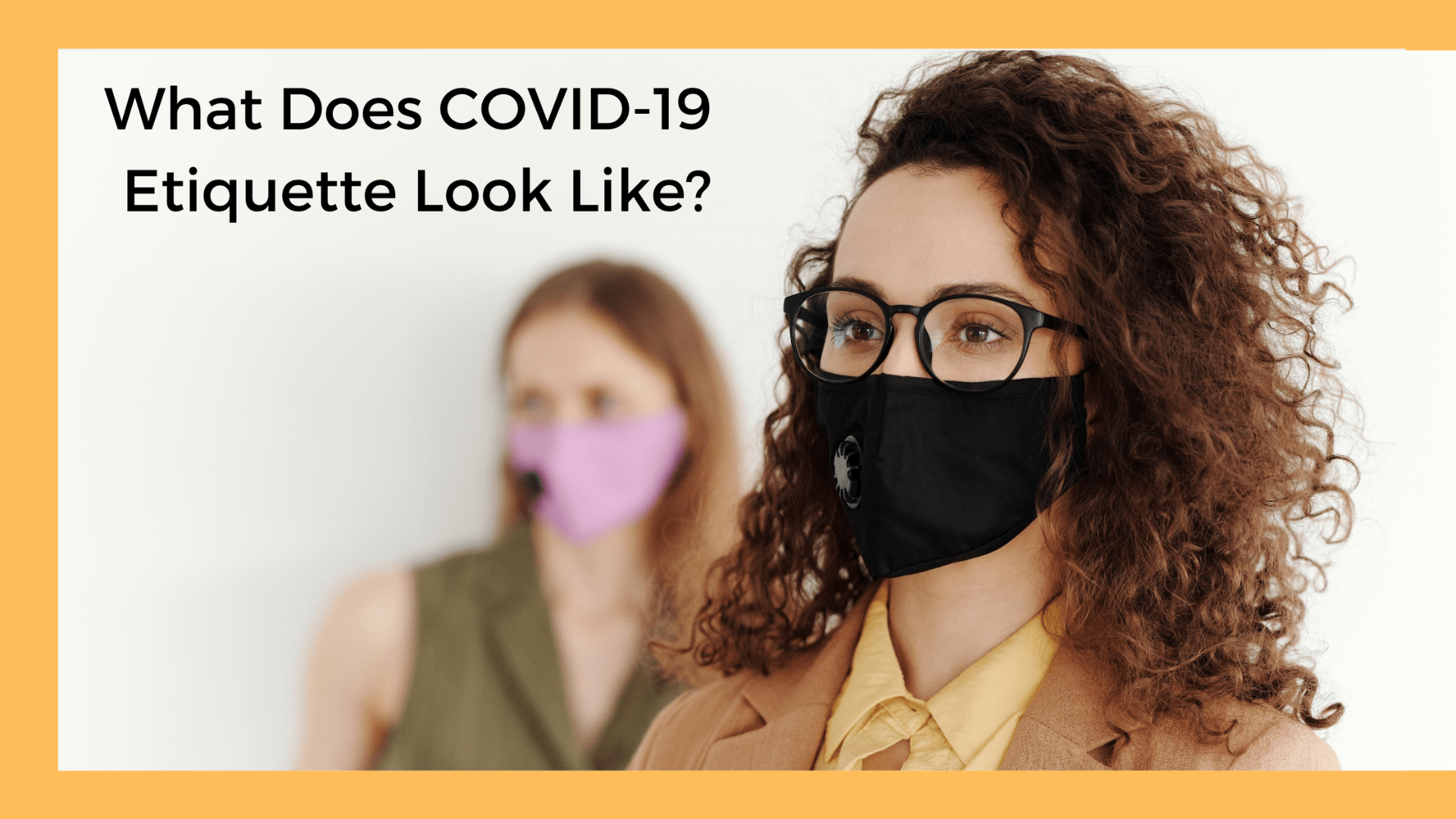
How do I ask someone to step back because they are not standing within 6 ft away from me?
How do I prompt someone to put their mask on?
What if someone ignores the guidelines of wearing a face covering and keeping social distance, what do I say or do then?
These are all good questions to consider and it is something that we must think about especially if we want to reduce the spread of COVID-19. It is important to create and set your boundaries to keep yourself and others safe. Reflect on what your boundaries are and how you want to enforce them when you are inside and outside of your home. It is also important for us to reflect on how we will respond to someone crossing our boundaries. On Chicago’s NPR News Source, Elaine Swann, a lifestyle & etiquette expert, was interviewed and shared some awesome tips about COVID-19 social etiquette that we want to highlight on today’s Wellness Wednesday post.

- Protect Yourself.
- If you are leaving your home and going out in public, wear your face covering and have your hand sanitizer and/or gloves nearby.
- If you ask kindly for a person to step 6 feet away from you and/or wear a mask and they do not, protect yourself by turning your face away from that person, stepping away from that person and/or walking in a different direction.
- Show mutual consideration.
- Use the words “we” and “us” when asking or telling someone to step back or wear a face covering. For example, “It is possible if we can put some space between each other while we wait in line?” Showing mutual consideration puts the focus on the concern for safety and health for the individual that you are asking.
- Scolding, yelling, calling people out and saying things like “step back!” or “get off me” will most likely cause the problem to escalate. If we ask in a kind manner, individuals are likely to be more open to listening respecting our boundaries.
- Use I-statements for maximum effectiveness and state your needs clearly. This especially effective when communicating with those close to you who care about understanding where you’re coming from. Rather than “you’re being inconsiderate by not wearing a mask,” try saying “I feel unsafe without us both wearing masks; can we both agree to wear one?”

- Try not to take it personally.
- We understand that it can be really frustrating when you see individuals who are not following the health and safety guidelines for the pandemic. Please refrain from policing people’s behaviors, unless your safety is at risk. If you see someone that is not following the pandemic guidelines, take a deep breath and focus on protecting yourself and your family. Keep the focus on adjusting your behavior rather than trying to control others.

- Don’t Assume.
- Do not assume that everyone is following the guidelines. If you get invited to a gathering, ask questions in advance. For example, you can say: “I wear a face covering when I’m around others because I am concerned about everyone’s safety. Will you be practicing social distancing and wearing a face covering?” After their response, ask yourself if you are comfortable in attending. If not, just reply saying, “thank you for the invitation, but I will not be able to make it.” Refrain from forcing them to change their plans for your comfortability. Make the decisions that is best for yourself and
Take Care DePaul is more than just taking care of the DePaul community, it is about taking care of the people around us. If you find these tips helpful, Take Care DePaul by sharing them with another person.
Take Care, DePaul!
Love our Wellness Wednesdays articles? Join our DeHub group to receive the Wellness Wednesdays Newsletter.